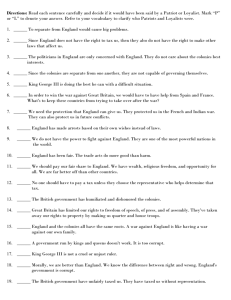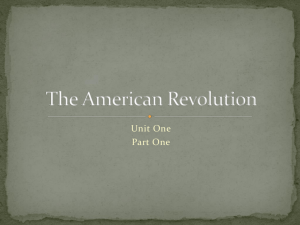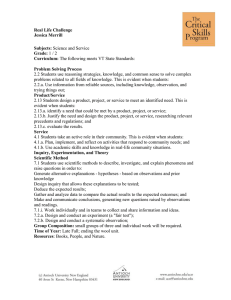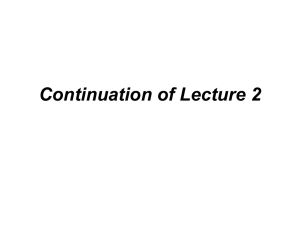British Mercantillism
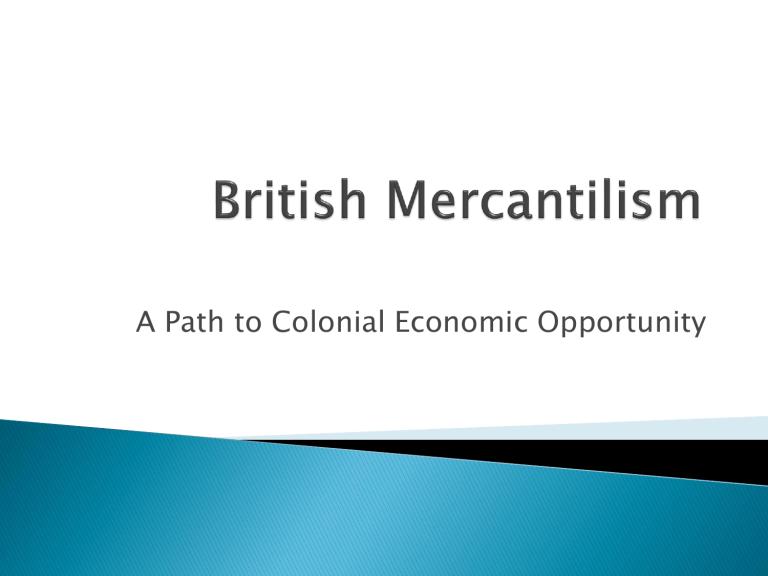
A Path to Colonial Economic Opportunity
The prosperity of a nation is dependent upon its supply of capital, and that of the global volume of international trade is
“unchangeable”.
The ruling government should advance these goals by playing a protectionist role in the economy.
◦ Encouraging exports
◦ Discouraging imports: through the use of tariffs & subsidies.
A series of laws which restricted the use of foreign shipping for trade between England and its colonies.
All goods bound for America must pass through either England or Wales; where it was unloaded, inspected, taxed, and reloaded on
British ships for transport.
These imports were sugar, rice, & tobacco, and they had to be landed & pay tax before going to other countries.
The results were:
◦ Increased costs to the colonists
◦ Increased shipping time
Attempted to heighten and increase control over colonial trade and production
Prohibited the export of wool from America which included: wool, wool yarn, and wool cloth to markets outside the colonies.
Prohibited the import of woolens and linens created in other areas of the British Empire.
Forced all wool to be sold in British markets, and then resold to British citizens in all areas of the empire.
Each sale generated taxes.
Tax of 6 pence/gallon on molasses from non-British colonies. Passed at the insistence of large plantation owners in the British West
Indies.
New England & Middle colonies had a large trade system with the French, Dutch, &
Spanish West Indies possessions.
Not instituted to generate revenue, but rather to control trade.
To control hat production of the Americans.
Placed limits on the manufacture, sale, and exportation of American hats.
Restricted hiring practices, by limiting the number of workers that hat-makers could employ, & placed limits on the number of apprenticeships (2).
Americans were forced to buy British-made goods, causing them to pay 4 times as much for hats & cloth imported from Britain than for local goods.
To restrict manufacturing, particularly in
North America, and to encourage manufacturing in Great Britain.
America was the 3 rd largest exporter of iron in the world.
If this act had been enforced, it would have severely limited manufacturing in the colonies.
Was designed to direct most American trade to Britain & to encourage the manufacture of goods for export to the colonies in Britain.
Until 1763, these acts were not enforced.
Although not enforced, they created resentment in the colonists.
They were attempts of the King & Parliament to show the colonists who was “boss”.
Eventually, these acts and others would lead to the cry of “taxation without representation”, which would lead to the
American Revolution.


